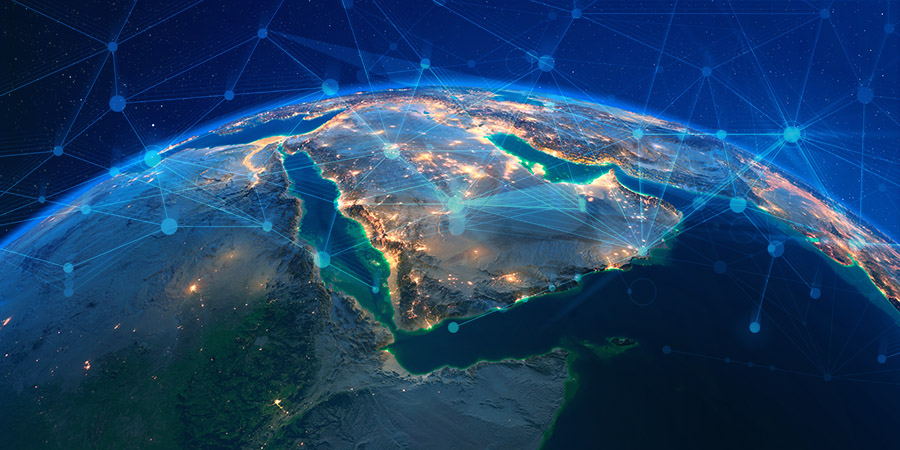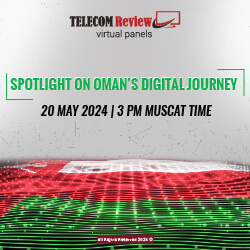GCC countries revealed strong digital transformation efforts in 2022 and this continued in 2023, ranking high on the latest annual GCC E-Performance Index.
The ICT sector within the GCC landscape was globally acknowledged and is poised for significant expansion and progress in the forthcoming years. A positive outlook was observed for the region's ICT sector, consisting of various factors including digital transformation, smart city initiatives, cybersecurity measures, innovation, cloud computing, e-commerce, artificial intelligence (AI), and robotics.
Governments in the region are dedicating their efforts to diversifying their economies, and this commitment, coupled with the growing tech-savviness of the population, establishes a favourable environment for sustained growth. The harmony between governmental commitment and cutting-edge technologies lays the foundation for a dynamic and flourishing ICT landscape across the GCC countries.
Also Read: From Deserts to Digital Dominance: Tech Transformation in the GCC
ICT Landscape in the GCC
Based on the 2023 GCC E-Performance Index, there are three dominant trends that have been observed across the countries: digitalization and smart cities; cybersecurity; and 5G technology adoption.
GCC governments are investing significantly in smart infrastructure, leveraging technologies like IoT, AI, and big data analytics. This emphasis on smart cities aims to transform industries such as healthcare, transportation, and energy, fostering a more connected and technologically advanced environment.
Also Read: High Marks for GCC Nations in Digital Quality of Life Index
As digital interconnectivity in the region has increased, so too has the risk of cyber threats. Governments and businesses are acknowledging this and investing in robust cybersecurity measures, including advanced technologies, skilled professionals, and comprehensive strategies. This emphasis on cybersecurity is crucial for maintaining trust in digital transactions, protecting national security, and sustaining the growth of the digital economy in the region.
Also Read: New Cybersecurity Pillars: Zero Trust and AI
The momentum for 5G deployment is increasing in the GCC, with both governments and the telecom sector making substantial investments in 5G infrastructure. The expectation is for its transformative impact to span across various sectors. With a focus on faster and more reliable connectivity, 5G is anticipated to drive innovations like augmented reality, virtual reality, and IoT as it advances into the 5G Advanced era. 5G's increased bandwidth and low latency are crucial for supporting smart applications, autonomous vehicles, and emerging technologies.
Also Read: GCC Nations Showcase World-Class Connectivity
UAE in the Spotlight
The GCC E-Performance Index for 2023 averages scores from five global indicators: the Global Talent Competitiveness Index (GTCI), Network Readiness Index (NRI), Government AI Readiness Index (GAR), Global Innovation Index (GII) and the UN E-Government Development Index (EGDI).
Also Read: MENA Governments to Increase Spending on Digitalization in 2022
The UAE currently leads with 65.43 points, followed by Saudi Arabia (58.34) and Qatar (55.22). Oman, Bahrain, and Kuwait showed significant growth with 52.46, 52.05, and 49.15 points, respectively.
In research and development, Saudi Arabia ranked 1st in the Arab world and 20th globally; the UAE was 2nd in the Arab world and 34th globally. These rankings highlight the region's commitment to innovation.
Across GTCI and NRI reports, the UAE excels in talent attraction, driven by its strong scores in technology, people, governance, and impact. In the GII report, the UAE surpassed high-income group averages in multiple areas.
Moreover, Dubai secured 5th worldwide and 1st in the Arab world for e-government, assessed by EGDI, across three important e-government dimensions: online services, telecommunication connectivity, and human capacity.










